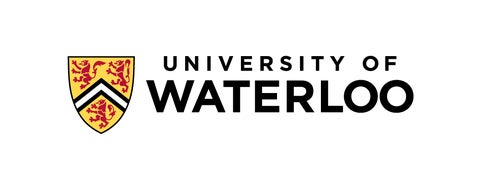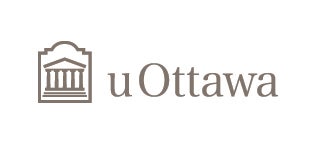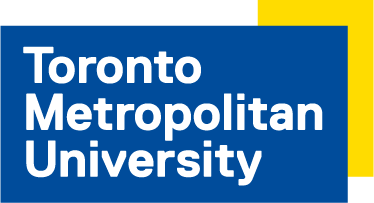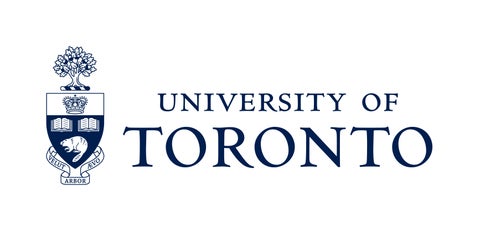
Open Research in a Changing Geo-Political Landscape
Come together in an interactive symposium, with a small number of plenary speakers, to discuss what researchers and institutions need to consider as we balance open access and safeguarding research.
Monday, October 7 & Tuesday, October 8, 2024
Federation Hall, University of Waterloo, Waterloo, Ontario
In their announcement of the National Security Guidelines for Research Partnerships, the Government of Canada noted that the Canadian research ecosystem must be “as open as possible and as secure as necessary.” By looking at the current state and future directions of open research in the changing geo-political landscape, this conference unpacks what it means to be as “open as possible” today. A conversation is thus long overdue. Moving beyond the easy slogan of “as open as possible and as secure as necessary,” this event will be a high-profile summit that tackles the central question of what open research looks like – and what directions it should go in – in our ever-changing world.
Conversations around open research and safeguarding research are taking place on many interrelated yet often separate levels. All recognize the benefits of open science and the need for collaboration to meet global challenges, but to be as “secure as necessary” can present stumbling blocks to global scholarship.
Different communities draw on varying concepts of what it means to be an “open researcher.” Some researchers see their research as “open” in terms of contributing to international global scholarship, while posting their code on GitHub or providing datasets online. Others may consider particular limits to who sees what data and when, as within the scope of Indigenous data sovereignty. As well, librarians and scholarly communications may understand it in terms of varieties of Open Access, whereas other scholars may see it as new paradigms of knowledge mobilization outside of traditional publishing practices.
This 1.5-day conference, held at the University of Waterloo in collaboration with the University of Ottawa, Toronto Metropolitan University and the University of Toronto, will be a researcher-framed and -driven event that brings together academic researchers, including librarians, funders and policymakers. Topics of discussion include science diplomacy and the intersections of open science and safeguarding research. The goal will be a set of statements and framing questions, allowing the community to better articulate what researchers and institutions need in our ever-changing geopolitical landscape.
This event will be held under the Chatham House Rule.
"When a meeting, or part thereof, is held under the Chatham House Rule, participants are free to use the information received, but neither the identity nor the affiliation of the speaker(s), nor that of any other participant, may be revealed."
Day One: Monday, October 7
8:30-9:00 a.m.: Arrival, continental breakfast
9:00-9:15 a.m.: Opening Remarks, Territorial Acknowledgement
- Charmaine Dean, Vice-President, Research and International, University of Waterloo
9:15-10:30 a.m.: Opening Keynotes
- David Moher, Ottawa Hospital Research Institute and University of Ottawa
- Manal Bahubeshi, Vice-President, Research and Technology Partnerships, Natural Sciences and Research Council of Canada
10:30-11:00 a.m.: Break
11:00-11:30 a.m.: Panel "Researcher Perspectives, Then and Now"
- Adam Molnar, University of Waterloo
- Matthew Wiseman, University of Waterloo
- Chaired by Caroline Hyslop, University of Ottawa
11:30 a.m.-12:30 p.m.: Discussion Bloc 1
- Chaired by Caroline Hyslop, University of Ottawa
12:30-1:30 p.m.: Lunch, discussion continues
1:30-3:00 p.m.: Panel “Open Science in an Age of Safeguarding Research”
- Kelly Cobey, University of Ottawa Heart Institute
- Shawn McGuirk, Natural Sciences and Research Council of Canada
- An Chi Lee, Toronto Metropolitan University
- Paul Jarrett, University of Toronto
- Chaired by Justin Nankivell, University of Waterloo
3:00-3:30 p.m.: Break
3:30-4:45 p.m.: Discussion Bloc 2
- Chaired by Naomi Adelson, Toronto Metropolitan University
4:45-5:00 p.m.: Closing comments
5:00-5:45 p.m.: Break
5:45-7:00 p.m.: Conference dinner
Day Two: Tuesday, October 8
8:30-9:00 a.m.: Arrival, continental breakfast
9:00-9:45 a.m.: Opening Morning Keynote
- Leslie Chan, University of Toronto
- Chaired by Alison Hitchens, University of Waterloo
9:45-10:30 a.m.: Discussion Bloc
- Chaired by Alison Hitchens, University of Waterloo
10:30-11:00 a.m.: Break
11:00 a.m.-12:30 p.m.: Discussion and generation of principles
- Chaired by Ian Milligan, University of Waterloo
12:30-1:30 p.m.: Lunch, Conversation
1:30-2:00 p.m.: Wrap-up and “what we heard from all of you”
Speakers
Naomi Adelson
Office of the Vice-President, Research and Innovation, Toronto Metropolitan University
Naomi Adelson is a Professor and the Associate Vice President, Research and Innovation at Toronto Metropolitan University. As a medical anthropologist, she worked for over 30 years with the
Iiyiyu’ch of Whapmagoostui First Nation, in Iiyiyu Istchee (northern Québec) on topics of health & well-being, social suffering, stress, and identity, always grounded in a critical-interpretive analytical framework. Naomi’s more recent focus is on the responsibility of social scientists to Indigenous data sovereignty. She has been working collaboratively with the Whapmagoostui First Nation to digitize and transfer her research data to the community in a format appropriate to supporting their active stewardship of the oral recordings, transcriptions and images. In addition, and in separate projects, she is exploring the working life of a nurse who was stationed in Whapmagoostui/Kuujjuarapik in the Cold War period of the early 1960s and, in 2021, created and launched an online life history honouring esteemed Iiyiyiuskwaau, educator, and friend, the late Emily Masty.
Manal Bahubeshi
Research Partnerships, Natural Sciences and Engineering Research Council of Canada (NSERC)
Ms. Bahubeshi joined NSERC in November 2020 as Associate Vice-President of Research Partnerships and has served as Vice-President of the Research and Technology Partnerships directorate since August 2022. In this capacity, she leads a talented executive team responsible for the operations and delivery of NSERC’s funding opportunities for university-based research partnerships, as well as providing tri-agency leadership for the delivery of college programming and the implementation of the Government of Canada’s research security requirements.
Ms. Bahubeshi’s career in the Government of Canada spans more than two decades in departments and agencies responsible for science and research. She has held positions of progressive responsibility at the Canadian Food Inspection Agency, Health Canada, and Innovation Science and Economic Development Canada in areas ranging from biotechnology and biosafety to research funding policy, including advisory roles to Health Canada’s Chief Scientist and the independent review of fundamental science.
Having grown up on three continents before settling in Ottawa in her youth, she is passionate about global affairs and advancing Canada’s contributions to the world. Ms. Bahubeshi holds a master’s degree from the Norman Patterson School of International Affairs at Carleton University.
Leslie Chan
Department of Global Development Studies, University of Toronto Scarborough
Leslie Chan is an Associate Professor, Teaching, and the director of the Knowledge Equity Lab in the Department of Global Development Studies, University of Toronto Scarborough. As an early practitioner of the Web for scholarly exchange and online learning, Leslie has been interested in the role and design of knowledge infrastructure and their impact on local and international development. In particular, he has been studying the geopolitics of academic knowledge production and the uneven power relations embedded in this production. Leslie was the PI of the Open and Collaborative Science in Development Network (OCSDNet) funded by IDRC and DFID. He is on the advisory board of several international organizations, including the San Francisco Declaration on Research Assessment (DORA) and the Directory of Open Access Journals (DOAJ), and was a founding steering committee of Invest in Open Infrastructure (IOI).
Kelly Cobey
School of Epidemiology and Public Health, University of Ottawa
Kelly Cobey is a scientist at the University of Ottawa Heart Institute where she leads the Metaresearch and Open Science Program. She is also an associate professor in the School of Epidemiology and Public Health at the University of Ottawa. Dr. Cobey has interests in topics including the implementation of open science, the reporting quality of research, data management and sharing best practices, research reproducibility, and patient engagement in research. She is active in the national and international global science policy community. She presently serves as the co-chair of DORA (Declaration On Research Assessment) and is a current member of the Council of Canadian Academies expert panel on dual-use research of concern (DURC). She actively consults to provide her expertise to federal agencies and academic institutions.
Charmaine B. Dean
VPRI and Department of Statistics and Actuarial Science, University of Waterloo
Charmaine Dean is Vice-President, Research and Intenational and Professor in the Department of Statistics and Actuarial Science at the University of Waterloo. Her research interest lies in the development of methodology for disease mapping, longitudinal studies, the design of clinical trials, and spatio-temporal analyses. Much of this work has been motivated by direct applications to important practical problems in biostatistics and ecology. Her current main research applications are in survival after coronary artery bypass surgery, mapping disease and mortality rates, forest ecology, fire management, smoke exposure estimation from satellite imagery, and modeling of temporary and intermittent stream flow for flood analysis and predictions.
Alison Hitchens
Library, University of Waterloo
Alison Hitchens is the Associate University Librarian, Collections, Technology and Scholarly Communication at the University of Waterloo Library. In this role, she provides leadership for information technology, bibliometrics and assessment, library collections, discovery and access, scholarly communication, and special collections & archives.
Caroline Hyslop
Research Services, University of Ottawa
Caroline Hyslop is the Associate University Librarian for Research Services at the University of Ottawa. The division for which she is responsible provides support at all stages of the research cycle for all faculties, as well as Research Data Management, Archives and Special Collections, Digital Scholarship and Scholarly Communication. Caroline currently chairs the steering committees of Borealis, the Canadian Dataverse Repository, as well as the Ottawa-Outaouais Research Data Centre (ORDC). She is a member of the Association of Research Libraries’ Scholars and Scholarship Committee and uOttawa’s Research Data Management Advisory Group. Prior to joining uOttawa, Caroline held management and functional roles at the Library of Parliament and the County of Carleton Law Association.
Paul Jarrett
Office of the Vice-President, Research & Innovation, University of Toronto
Paul Jarrett is the Director of Research Security at the University of Toronto, where he leads a small team providing research and geopolitical security advice to U of T’s research community and partners. Before joining U of T, Paul was a Senior Advisor to the Ontario Government and was a national security practitioner in the Federal Government for over a decade. Paul holds a BA and MA from Wilfrid Laurier University and an MA from the Australian National University.
An Chi Lee
Office of the Vice-President, Research & Innovation, Toronto Metropolitan University
An Chi Lee is the Director of Research Security at Toronto Metropolitan University. Ms. Lee has over a decade of experience in the national security and intelligence practice where she specialized in counterintelligence investigations, particularly on foreign influence and interference operations. After eleven years at Public Safety Canada, Ms. Lee served as a senior advisor in the Office of the Provincial Security Advisor in the Ontario government, where she designed and developed the nation's first risk-based due diligence methodology for research grant applications. In spring 2023, she joined Toronto Metropolitan University as its inaugural Director of Research Security. In this role, Ms. Lee advises researchers and senior university leadership on research security policies, provides expert recommendations on risk mitigation and best practices, and develops and implements strategies to meet institutional risk management objectives.
Shawn McGuirk
Research Security, Natural Sciences and Engineering Research Council of Canada (NSERC)
Shawn McGuirk is Director for Research Security at the Natural Sciences and Engineering Research Council of Canada (NSERC), and represents NSERC as co-chair of the Global Research Council’s Responsible Research Assessment Working Group. He joined NSERC in 2018 as a Mitacs Canadian Science Policy Fellow and is an alumnus of the Government of Canada’s Recruitment of Policy Leaders program. Previously, he conducted research at the Goodman Cancer Research Institute of McGill University centered on the role of cellular metabolism in cancer progression. Shawn is also a longstanding member of the boards of directors of Acfas and Science & Policy Exchange.
Ian Milligan
Office of the Vice President, Research and International and Department of History, University of Waterloo
Ian Milligan (he/him) is Associate Vice-President, Research Oversight and Analysis at the University of Waterloo, where he is also professor of history. In this service role within the Office of the Vice-President, Research and International, Milligan provides campus leadership for research oversight and compliance, and is the campus research integrity lead.
Milligan also helps to lead the Safeguarding Research portfolio, oversees the Office of Research Ethics, the Inclusive Research Team, supports research health & safety, serves as a lead on emergency issues related to research (including COVID research response), co-chairs the Waterloo Awards Committee, and helps to coordinate bibliometrics activities. Finally, Milligan co-led the campus-wide Research Data Management strategy and is currently working on its implementation.
David Moher
School of Epidemiology and Public Health, University of Ottawa
David Moher, a clinical epidemiologist, at the Ottawa Hospital Research Institute, and School of Epidemiology and Public Health, University of Ottawa, and Institute of Health Policy, Management & Evaluation, Dalla Lana School of Public Health, University of Toronto, has spent his academic career pursuing various types of research interests including developing the evidence base for how to conduct systematic reviews and meta-analyses. Professor Moher has also developed many reporting guidelines including CONSORT 2024 and PRISMA 2020. He has also developed the evidence base for how to develop reporting guidelines. Over the last 10 years his research focus has been on the principles and practices of open science including data sharing and reproducibility. Professor Moher was elected as a Fellow of the Royal Society of Canada and a Fellow of the Canadian Academy of Health Sciences.
Adam Molnar
Department of Sociology & Legal Studies, University of Waterloo
Adam Molnar is an Assistant Professor of Sociology & Legal Studies at the University of Waterloo. His research program bridges surveillance studies, computer science, and socio-legal scholarship, integrating methods from each to critically investigate the design, implementation, and governance of digital surveillance technologies. He is particularly interested in how these technologies impact privacy, human rights, and the broader socio-political landscape. With funding from the Social Sciences and Humanities Research Council of Canada (SSHRC) and The British Academy, Molnar’s current research examines the proliferation of employee monitoring applications and algorithmic management in Canada, the UK, and Europe. His work also extends to critical assessments of the use, impacts, and regulation of surveillance technologies within policing and national security agencies.
Justin Nankivell
Office of the Vice-President, Research and International, University of Waterloo
Justin Nankivell is the current Director of Research Security at the University of Waterloo. His role has the goals of creating a safeguarding research program that can navigate research risk, protect Waterloo researchers and institutes, create risk-mitigation processes, protect commercialization and international efforts, and utilize cyber security and data protection mechanisms to safeguard the University of Waterloo in its key STEM areas and range of innovation institutions.
From 2008-2018, Dr. Nankivell was a professor of international law and international Security, and later Associate Dean of Academics, at the Asia Pacific Center for Security Studies, under the Office of the Secretary of Defense for Policy, in the US. He specialized in East Asia security governance, international law, and foreign policy. From 2018-2022, he worked as a senior executive in the Government of Canada, handling a range of national security files related to the Indo-Asia Pacific, to include economic security and the protection of democratic institutions.
Matthew Wiseman
Department of History, University of Waterloo
Matthew S. Wiseman is a Lecturer in the Department of History at the University of Waterloo. He attained a PhD in Canadian History from Wilfrid Laurier University in 2017 and held consecutive post-doctoral fellowships at the University of Toronto (2017-19), Western University (2019-20), and St. Jerome’s University (2020-22). His research investigates the history of military-sponsored science in twentieth-century Canada, including the development and use of scientific intelligence during the Cold War. He also studies the history of Canada’s National Research Council and the role of the federal government in funding, promoting, and protecting open science in Canadian research institutions. He is the author of Frontier Science: Northern Canada, Military Research, and the Cold War, 1945–1970 (Toronto: University of Toronto Press, 2024).
Organizing committee
Special thanks to the organizing committee:
- Ian Milligan, University of Waterloo (chair)
- Naomi Adelson, Toronto Metropolitan University
- Jason Boyd, Toronto Metropolitan University
- Leslie Chan, University of Toronto
- Dan Harney, University of Toronto
- Stefanie Haustein, University of Ottawa
- Alison Hitchens, University of Waterloo
- Martine Lagacé, University of Ottawa



